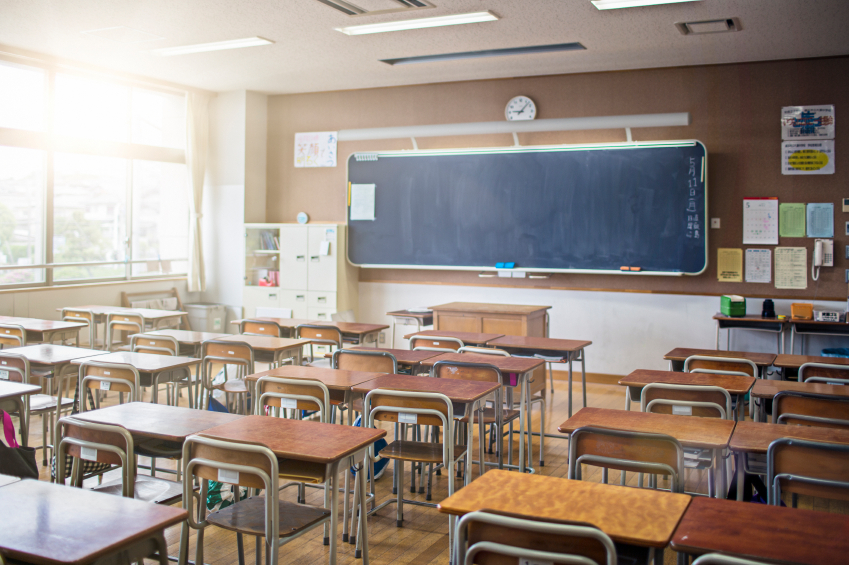
Gifted and talented children are not well served by the traditional school system in the United States. Traditional schools are limited by policies, funding, resources, or teacher time, training or specialization. There is a growing interest across the country to provide more opportunities for gifted and talented children to further investigate, explore and develop their unique interests, and help them develop careers that fulfill their potential.
Department of education: one size does not fit all
In order to address concerns about the lack of systematic and specific data regarding programs for gifted students, the U.S. Department of Education commissioned a study in 2014 to develop a national portrait of the current status of gifted programs at the elementary, middle, and high school levels.
This study, called the National Surveys of Gifted Programs, concluded “that the broadened conceptions of giftedness have not been widely adopted and/or operationalized in local level practices.” For various reasons, including federal and state programs enforcing “No child left behind” policies as well as funding limitations have made it difficult to provide programs to recognize gifted students and provide the opportunities to explore and develop their talents.
The reported delivery systems suggest a “one-size-fits-all” approach that runs counter to the research findings that gifted students are not a homogeneous group with the same learning needs. The Department of Education recognizes that public schools are not serving the gifted and talented students very well. Private schools are a necessary alternative.
Private schools fill the gap by committing to this segment of the student population that shows so much promise for the future of society. However, like all students are not the same, not all private schools are the same. What should one look for in a good private school for gifted and talented children?
NAGC offers school standards for teaching the gifted
The National Association for Gifted Children has developed standards for educational institutions designed to instruct gifted and talented children. These are the guidelines that private schools should follow to provide the best experience for gifted students
Environment should be conducive to multicultural learning and development
A school for gifted children should provide students with the opportunity to develop a knowledge and understanding of how they learn and grow, and they should be able to identify their own areas of interest, their strengths and their needs. Schools should provide the social environment where students can relate to peers and develop multi-cultural understanding and communication. They should develop an appreciation of their own and others’ culture, language and heritage.
In traditional schools, many intellectually gifted students feel that they do not belong or do not fit the social structure of their class environment. They feel uncomfortable and lack confidence. A school for gifted children that supports and encourages peer relationships can go a long way to stimulating positive self-image and social interaction.
The leaders of tomorrow will come from many countries, races and backgrounds. Schools need to educate students in the cultural realities of interdependence needed for global survival. Students who are racially, ethnically and linguistically different need opportunities to learn from each other. There is a cultural opportunity gap today that a good private school can help to close.
Curriculum and instruction should address academic, creative and artistic domains
The school curriculum should emphasize advanced, conceptually challenging, in-depth, content within cognitive, aesthetic, social, and leadership domains.
Schools should use local, state and national standards in planning and aligning and expanding curriculum programs. They should offer instruction that is consistent and paced according to individual student learning rates.
The curriculum should not be set randomly but based on academic and creative research. Some schools use the Integrated Curriculum Model developed by Joyce Van Tassel-Baska. The model uses three levels of advanced content, higher level processes and product development, and interdisciplinary concepts, issues and themes.
Beyond the math: teaching art, music, language, leadership
In traditional schools, there is a heavy emphasis on the areas of English Language Arts and mathematics, partially due to federal and state policies such as Common Core. There is also a lot of current emphasis on STEM – the application of science, technology, engineering and mathematics coupled with real-world lessons. These fundamental disciplines can stimulate intellectual development but are not the only avenues for gifted expression.
Music, art, and performance are other areas where gifted and talented students shine. Language, communications, and leadership are important, too. Schools that provide these paths would be a good choice to ensure the full development of every student.
There are many ways to measure intelligence and capability. Schools need multiple forms of assessments for gifted students. A school for gifted children will establish a challenging environment and collect multiple forms of assessment.
Parents can have their students tested before choosing a school to aid in the selection process. Knowing the child’s areas of specialized abilities will help determine the best school to seek out. One way to do this is to use the Northwestern University process.
Northwestern University’s Midwest Academic Talent Search (NUMATS) is a research-validated program that utilizes above-grade-level assessment, as a means of gifted testing, to help parents and educators better understand their students’ educational needs.
School for gifted children should be 360 degrees
A good school recognizes the need for complete communication, integration and cooperation among the school, student, parent and community. The school programming should support this concept. The school should offer coordinated services among gifted education, special education, general education, and related professional services like school counselors, psychologists and social workers.
Students should be able to develop career goals and have a talent development path to achieving them including advancement options like early entrance, acceleration, and credit in lieu of enrollment. A good school for gifted children will work with academic institutions of higher learning and community representatives to create such paths.
Staff should be certified and invested
Educators are keys to the inspiration of students to learn about themselves, their talents and their goals for what they want to accomplish in the world. These teachers need to express their own enthusiasm for learning. They need to stay informed and invested in their students’ success.
Teachers should participate regularly in research-supported professional development that addresses the foundations of gifted education. They should study the characteristics of gifted students and how to assess their growth and development.
They should plan their curricula to offer many ways to learn and create a pace that is appropriate for each student’s own learning rate. They should participate actively in the school program of immersive community support. A good school has an exceptional staff devoted to gifted children.
Another thing to look at is student to teacher ratios. While an idealistic goal would be one-to-one, a more realistic goal would be twenty-to-one or less. The ratio should be much smaller for younger children who would benefit from more personalized attention.
There should also be many ways for gifted children to access information, through independent means, classroom participation, after hours or summer programs, and distance learning. Complementary learning channels will reinforce the learning process and stimulate engagement. A good private school will offer alternative learning channels.
Summary
A good private school for gifted children will have the entire child in mind – the intellectual, creative, emotional, social, physical child – and have a school and program designed to accommodate all.
It will have the standards-based curriculum for the gifted and talented, integrated programs, dedicated staff and reputation for quality education in the community it serves. Are you looking for a good school for your gifted child? Let us know in the comments below!




